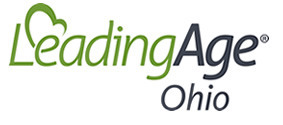Complete Story
07/24/2019
Emergency Preparedness Workgroup
LeadingAge Ohio and many of its members attended the Ohio Department of Health (ODH) Emergency Preparedness (EP) workgroup meeting on July 17, 2019. The next workgroup meeting will be held at the LeadingAge Ohio offices in October.
The meeting covered lessons learned through the tornado event in Dayton last month and considerations for preparing for the anticipated heat wave. ODH reminded the group that, in the event of an emergency or natural disaster, they will reach out to providers; following the Dayton tornadoes, ODH reached out to approximately 200 providers.
ODH asks that providers follow up with ODH on their post-event recovery due to ODH’s requirement to report it to the Centers for Medicare & Medicaid Services (CMS). ODH reminded providers to conduct a fire watch during events when water supply is lost.
During the In The Know call in June, LeadingAge Ohio provided members an after-action report with a completed sample report. Following the Dayton Tornadoes, LeadingAge Ohio members in the affected areas were contacted and offered boots-on-the-ground support.
Emergency Preparedness Considerations
- Don’t wait for the event to prepare and test systems/protocols for effectiveness, this should be done prior to any emergencies.
- Ensure generator fuel supply is assessed and audit the vendor’s invoice and/or work report for confirmation.
- Meet with vendors annually to assess availability of back-up equipment. The vendor Mobile Air was able to immediately provide one of our members with portable AC units that connected directly into the buildings ventilation which kept the building below 81 degrees. Work with vendor to ensure units are compatible and determine which contractor will be used to make changes to the generator.
- If cooling spots such as dining rooms are needed to be established, ensure there is a protocol to keep residents cool and assessed, including having a practitioner doing rounds, having fans, cool rags, increasing hydration, etc.
- Reach out to local Emergency Management Agency and assess the level of support that is available. Each county has their own budgets so personnel resources will vary by county. Participate in county coalitions.
- Evaluate back up plans for equipment that runs off electricity, such as automated flush toilets, lifts, oxygen concentrators, etc. Determine the length of time that back up systems can be maintained.
- Include generator preventative maintenance test in vendor contract for long-term rental equipment.
- Develop Memorandum of Understandings (MOU’s) for emergency transfers outside of immediate area, should residents need to be moved.
- Establish an emergency transportation plan with local entities such as schools and rental vehicle companies.
- Obtain emergency communication radios such as MARS radios.
LeadingAge Ohio wants to support members in emergency preparedness by assisting members in establishing MOU’s/transfer agreements, answering You Asked We Answered (YAWA) questions, providing templates for emergency preparedness, connecting members with resources and vendors, and ongoing training such as Active Shooter training and Emergency Preparedness and Life Safety training.
